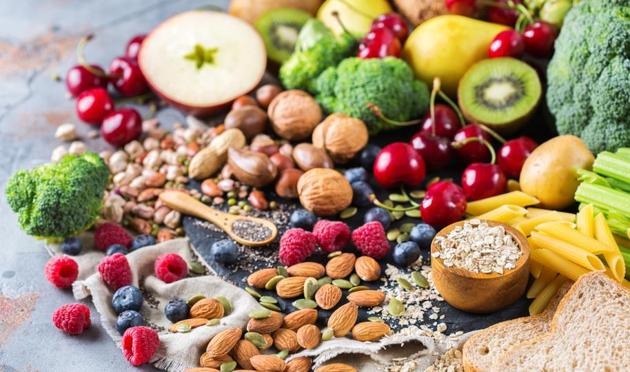Our Blog

Fasting Versus Carb Restriction

Both carb-restriction and fasting appear to operate along similar physiological pathways. Both have lower carbs. Both increase fat adaptation. Both have the capacity to get you into ketosis. Both lower insulin and blood sugar.
If both serve the same purpose which one is better?
Is there a possibility that an intermittent fasting program outperforms a limited carbohydrate consuming diet and the other way around?
Let’s look at the differences between fasting and carbohydrate restriction.
Losing Body Fat
The primary or majorly known reason for which anyone follows either intermittent fasting or carb restriction is for losing body fat. You know it is undeniable.
Restricting carbohydrates through a proper low carbohydrate diet helps reduce body fat amazingly. Sure, using “low-carb” meals containing 35-40% carbohydrates or calorically controlled diets skews the outcomes, yet genuine low-carb eating behavior researches reveal that individuals voluntarily lower calories as well as shed fat in the body quicker in comparison to other programs.
Intermittent fasting works for reducing body fat as well. Fasting on alternative days boosted the oxidation of body fat and losing weight in patients who are not overweight. Fasting on alternative days used to be an excellent approach for decreasing weight in overweight patients, with great dietary consistency continuously. Fasting on alternative days was equally as successful as calory restriction in producing weight reduction in relatively younger obese women, and it was simpler to stick to the first than the latter.
Carbohydrate limitation and intermittent fasting are two methods for calorie reduction that are simple to follow. Fasting completely eliminates the chance of ingesting. Carbohydrate constraint reduces the amount of the less nutritious macronutrients while increasing the amount of the most nutritious macronutrients. These diets improve the burning of fat while also preserving lean muscle if you consume enough proteins and do heavy weights lifting.
The strategy for sticking to any diet plan is choosing the plan that will sustain. For the people who keep getting extremely hungry, fasting definitely will not be helpful for their weight loss. Interestingly, I have seen that simple carbohydrate limitation is the most effective and well-tolerated among people.
Health Reasons
Another significant reason for changing your dietary plan is if you have a history of Type 2 diabetes or maybe you have recently discovered an increased level of blood sugar or you think you can get diabetes hereditarily. Whatever the reason maybe you are trying to avoid the health issues that can arise from weight gain or high-calorie intake like many people.
Firstly, having type 2 diabetes makes a person intolerant to carbohydrate foods.
In research conducted on a group of people having type 2 diabetes, some of the people in the group consumed zero carbohydrates for 3 days, and the remaining people in the group fasted for the same amount of time. Below are the findings of the research after 3 days:
For zero carbohydrates it declined to 160 from 196 overnight. For fasting, it reduced even more to 127.
In 24 hours, the level of glucose for the people who consumed zero carbohydrates declined by around 35% and for people who were fasting it declined by around 49%.
In 24 hours, the level of insulin for the people who consumed zero carbohydrates declined by around 48% and for people who were fasting it declined by around 69%.
From the findings, it seems either of the methods would work, however, fasting was more effective. But you cannot keep fasting for an indefinite time.
A shortened window of eating is another name for the time period before or after fasting. The study’s shortened window of eating was consecutive 6 hours, the eating period was restricted from early morning to the middle of the afternoon. They missed dinner and only had breakfast.
The sensitivity of insulin decreased fasting insulin, the increased function of the beta cell of the pancreas, and the hunger urge at night are improved for the intermittent fasters. Their stress of oxidative and blood pressure was better than before. However, all of these were achieved by them without losing any significant amount of weight.
When it comes to fasting, the hour of the day matters a lot. It is possible that you can skip breakfast and it would not have a similar impact as missing dinner. If you decide to do intermittent fasting for treating prediabetes, high blood sugar, or type 2 diabetes, remember to keep track of the progress. Also, you should experiment with fasting at various times of a day.
Performance of Athletes
Carbohydrate restrictions and increased carbohydrates for important tournaments are recommended for distance runners who want to enhance overall aerobic capacity and boost glycogen preservation. It is a terrific technique to train your system to use its body’s stored fat as fuel for a long time throughout races while deferring the burn off large amounts of glycogen till the very end. When done properly, this approach enables a racer to have more than enough fuel left in the body while the other pack is functioning by fumes.
Relatively high-intensity sportsmen who want or require consuming more carbohydrates to replace the glycogen levels, are constantly depleting and cannot do that with a carbohydrate-restricted regime. They could choose an intermittent fasting method that is carbohydrate skeptic. Intermittent fasting might not even increase fitness explicitly, but it can surely cohabit with a carbohydrate-restricted diet.
Final Takeaway
Intermittent fasting and carbohydrate restriction are both beneficial for losing body fat, controlling malfunctioning responses of blood sugar, and improving fat burning and glycogen storage during sports or any physical activity.
Begin with a basic carbohydrate constraint, by limiting needless carbohydrates and only eating those which will be needed to support high-intensity physical activities. You can also skip either breakfast or dinner if you want. Perhaps you will never be able to do it and that is all right.
The essential factor is to burn fat over lengthy stretches of time while keeping insulin levels low. Intermittent fasting and carbohydrate restriction both can help in achieving that.







